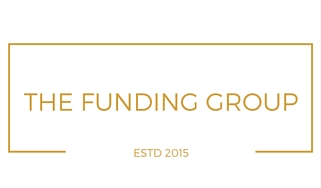It is essential to invest in yourself and your future. Also, planting roots in a new house is a great way to start investing in your own future. You may experience some stress when buying a house.
Keep your head up and be positive. You’ll remember this experience with positive memories, not negative. Although I advocate yoga, naps and lavender oil for stress relief, there are many other practical steps that you can take to make the mortgage process smoother. These seven tips will help you keep stress at bay.
Learn and Understand the Process
Uninformed or unqualified in the way things are done is one of the top stress triggers in mortgage process.
Understanding the process will help you feel empowered and more in control throughout each phase. The process can seem complex if this is your first home. The following steps can be used to simplify the mortgage process:
- Financial self assessment and preparation. Here you will outline your budget, credit, savings and prepare all documents necessary for the loan application. Before you start your home search, this step is essential.
- Applying to borrow money: In this step you will submit your loan application and possibly get pre-qualified.
- Mortgage processing: Your loan file is created when all your documents are merged, including your application. This is where you may be granted a conditional approval without having a property address in your mind. This is done through an upfront underwriting process. This can help you make sure you are looking at homes that fit your budget.
- Underwriting: An underwriter reviews your loan application and determines the risk of repayment. Sometimes, the underwriter will review your file and give you a conditional approval.
- Accepting loan conditions: This step can be a bit like a task-list for you. It will outline the conditions that you still need to meet before you’re fully approved, such as clearing a past debt or proof of insurance.
- The closing step: Also called the settlement, it is the last step in the mortgage process. Here all monies are distributed and all paperwork is signed.
- Understanding the mortgage process can help educate and reduce confusion. However, understanding it won’t make the process actually start. This leads me to my next tip for reducing stress in the mortgage process.
Begin to Plan Early
Stress can be caused by a tight deadline. Do yourself a favor by getting started on your mortgage preparations early. It is never fun to feel rushed or unable to plan.
You will need to prepare a lot of documents (I’ll discuss those later), research information, and make decisions regarding your mortgage. It is a good idea to start planning as soon as you are interested in purchasing a home.
Check and work on your credit
How is your credit score? Is your credit standing good? Are there any areas that need improvement? It will help you to reduce stress during the mortgage process by properly assessing your credit.
You will need to evaluate your credit score and flags. Also, you should consider any actions you could take to improve your credit. You may discover things that cannot be undone or remediated. Do not be discouraged. Early detection of possible obstacles during the mortgage process will help lower stress levels.
The Correct Way to Plan Your Budget
It will help you avoid stress and save you a lot of time during the mortgage process. What you can afford should be part of your home budget. This includes list price, taxes and fees as well as insurance costs. Begin by mapping out your monthly finances.
Draw a diagram of your monthly household income and monthly debts. When you have established your budget for your home, make sure you can afford it realistically.
Usually, stress will only increase if you spend more than is possible. You can plan your budget by incorporating all of your debts into the 50/20/30 budget.
Utility bills, mortgage payments, and car payments are all examples. Your recurring payments will account for 50%, with 20% going into savings and 30% to you to spend as you please. You can save money and still be able to spend comfortably if your mortgage falls within the 50% recurring payment limit.
Learn the details
The mortgage process involves many documents. It can be difficult to decipher these documents, but it is worth taking the time necessary to understand them and prepare them.
Here is a list with common documents that you might encounter during your mortgage process. It also includes information about when and how to prepare them.
Before you begin the mortgage process, make sure to familiarize yourself with all required documents. This will help reduce stress. Applying for a Loan
- Application for a mortgage loan: This is the document you will need to complete in order to apply for your loan. This document should be completed and submitted to your lender before you begin the home search. This will help you to anticipate the type of loan you might be eligible for from your lender. This document may seem long at first glance. This document is intended to contain detailed information about your finances as well as details about your possible mortgage.
- Credit report: The lender will review your credit report when they assess your loan file.
- Pay stubs from the last 30 days: These documents can be used as proof of income to support your loan application. Tip: Make sure you start putting aside all pay slips as soon you decide to buy a home. Also, keep them on hand throughout the mortgage process in case your lender requires more recent pay slips.
- W-2 forms from the last two years: These will serve as proof that you have earned income and will be included with your application for a mortgage loan.
Avoid switching jobs during the mortgage process as it may impact your proof of steady income.
- Information about long-term debts, like car loans, student loans, etc. These documents will help your lender understand your debts better, including how long you’ve had them and your repayment history.
- Recent bank statements: These documents can be used to help lenders assess your spending habits, income, debts and savings.
- If you are self-employed, tax returns for the last two years will be required. Similar to W-2 forms, your tax return will serve as proof that income and will be attached to your loan application.
- Any supplemental income must be documented and tracked during the mortgage application process. These documents will be required during the loan application process. They will also serve as proof of income.
After Submission
- Once your application has been reviewed and approved, a pre-approval letter will be sent by the lender to let you know how much you can afford. This letter is important to have before you begin your home search.
- Loan Estimate: Once you have submitted your loan application, and received approval from your lender, this document will outline the estimated terms and costs of your loan. It is useful for comparing lenders.
Approved
- The commitment letter: After you have been approved, the lender will send this document to you. It details the amount, the term, the interest rate, APR and monthly charges. Similar to the Loan Estimate, this letter will be signed and you are guaranteed financing for the loan terms.
- Appraisal disclosure: A document that states you have the right of receiving the complete appraisal report for your home.
- Closing disclosure: You will receive this document from your lender prior to your final closing. It details the exact amount you will have to pay for various fees and services that are associated with closing your mortgage loan.
Closing
- The mortgage note: This is the official legal document that outlines your agreement to repay and the terms of repayment.
- The mortgage: You sign this document confirming that your lender is authorized to seize your property in the event of foreclosure (failure-to-pay).
- The deed is a document that describes the transfer of property ownership from the previous owners to you.
Learn and Understand All Your Options
There are many decisions to be made during the mortgage process. The mortgage process is complex. You will need to determine your budget, where you are going to live, who your lender is, and what your preferred terms and conditions for your mortgage.
Be aware that you have choices and allow yourself to compare your options to help lower your stress.
Make friends with your Beverly Hills mortgage broker
A relationship with your Beverly Hills Mortgage Broker can make you more confident, comfortable, and support you during the mortgage process. This will reduce stress.
You should make sure you choose a lender who not only meets your requirements but also considers your best interests throughout the whole process.

